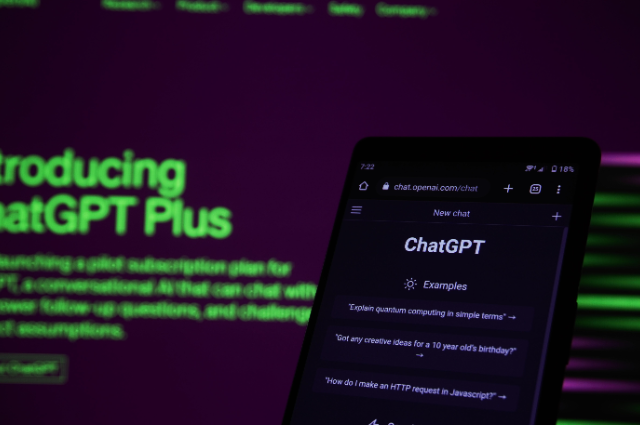
In the ever-evolving landscape of Artificial Intelligence (AI), the development of ChatGPT stands as a significant milestone in the realm of Natural Language Processing (NLP). Engineered by OpenAI, ChatGPT harnesses transformer-based language models, employing sophisticated deep-learning techniques to generate text remarkably similar to human speech. NLP, a field within AI, aims to equip machines with the ability to comprehend, interpret, and create human language in a coherent and meaningful manner. This technological feat represents a paradigm shift in AI's potential, particularly in the realm of linguistic understanding and interaction.
The application of ChatGPT spans across diverse industries, marking its widespread adoption in numerous sectors like healthcare, education, finance, entertainment, cybersecurity, marketing, and more. Its adaptability and multifunctional capabilities have rendered it an indispensable tool, especially in the development of conversational AI and chatbots for customer service, virtual assistance, tutoring, document assessment, consultancy, and various other interfaces. ChatGPT's evolution signifies a monumental leap in natural language understanding, showcasing its ability to engage in coherent conversations, process diverse inputs, and adapt to specific tasks through fine-tuning, making it an indispensable asset for businesses and developers.
However, amidst its burgeoning utility, the pervasive use of ChatGPT has raised ethical quandaries that demand critical attention. In a landscape increasingly dominated by AI-powered tools with human-like language capabilities, the concept of truthfulness and authenticity becomes significantly convoluted. The seamless mimicry of human speech by AI-driven bots raises concerns regarding the potential for manipulation and deception on a mass scale, blurring the lines between human and machine interactions.
The juxtaposition of AI's potential to augment human efficiency with its pitfalls necessitates a fundamental question: how do we develop AI that aligns with human goals while educating individuals on the effective and ethical use of these transformative technologies? The ethical complexities stemming from the utilization of ChatGPT extend across several domains, invoking pivotal challenges and responsibilities in its application and development.
The Evolving Landscape of ChatGPT: Advancements and Ethical Challenges
The evolution of ChatGPT has been characterized by significant advancements in natural language processing and human-machine interactions. Notably, ChatGPT has showcased enhanced language understanding, improved coherence in responses, and a commitment to ethical AI practices.
OpenAI's consistent dedication to research and development augurs well for the future enhancements of ChatGPT, especially in refining areas such as natural language comprehension, context handling, and ethical considerations.
Applications and Ethical Predicaments
The versatile applications of ChatGPT in diverse industries, such as healthcare, finance, entertainment, cybersecurity, marketing, and more, underline its potential impact. However, ethical dilemmas emerge as ChatGPT becomes an integral part of streamlining processes and enhancing user experience. For instance, while it automates internal processes like HR and IT, providing efficient and accurate responses, it also raises concerns about the potential over-reliance on AI-driven systems among human service representatives.
Furthermore, the extensive use of ChatGPT in communication and collaboration endeavors raises ethical red flags regarding data privacy, bias, misinformation, and content generation. Privacy concerns arise from the data collection process, potentially exposing personal information to misuse or unauthorized access. Biases in language generation can lead to unfair treatment or discriminatory responses, requiring diverse and representative training datasets to mitigate such issues. Misinformation and harmful content generated by ChatGPT underscore the need for robust content filtering and moderation mechanisms to prevent offensive or abusive language dissemination.

The Ethical Quandaries: A Multifaceted Challenge
The multifaceted nature of ChatGPT's ethical concerns prompts a nuanced approach toward addressing these challenges. The following pivotal ethical considerations encompass ChatGPT's usage and development:
Privacy Concerns and Data Security
The collection of user data raises significant privacy concerns, necessitating stringent measures to safeguard sensitive information. Developers must prioritize the implementation of robust encryption protocols and comprehensive data protection mechanisms to ensure user privacy and prevent data breaches.
Bias Mitigation and Fairness
ChatGPT's language generation can perpetuate biases inherent in its training data, leading to unfair or discriminatory outputs. Mitigating biases requires meticulous curation of diverse and representative datasets to counteract ingrained prejudices and ensure equitable responses across all user interactions.
Combatting Misinformation and Harmful Content
The potential for ChatGPT to generate misinformation or offensive content mandates the implementation of rigorous content filtering and moderation tools. Proactive measures need to be in place to prevent the dissemination of false information or abusive language, upholding ethical standards in communication.
Responsible AI Development: A Pathway to Ethical Integration
Responsible AI development practices play a pivotal role in ensuring the ethical and prudent utilization of technologies like ChatGPT. Initiatives promoting transparency, accountability, and explainability serve as foundational pillars for ethical AI integration into society. Collaborative efforts among developers, policymakers, and stakeholders emerge as imperative in shaping the trajectory of AI's ethical integration and usage.
Technical Solutions for Ethical Integration
Developers must undertake various technical measures to address ethical concerns associated with ChatGPT. This involves ensuring diverse and representative training datasets to mitigate biases and deploying robust content filtering and moderation mechanisms to curb the dissemination of harmful content. Moreover, the incorporation of stringent privacy measures and encryption protocols is vital to safeguard user data and maintain confidentiality.
Policy Solutions and Regulatory Framework
Policymakers play a crucial role in fostering ethical AI implementation by formulating comprehensive guidelines and regulations governing AI applications like ChatGPT. Collaborative efforts among governmental bodies, regulatory authorities, and AI developers are necessary to bridge the gap between the rapid evolution of AI technologies and regulatory frameworks.
Conclusion: Charting an Ethical Trajectory for ChatGPT
ChatGPT, heralding a new era in AI-driven language processing, holds immense promise for various industries but also demands a cautious and ethical approach in its usage and development. Ethical considerations surrounding data privacy, bias mitigation, and content moderation necessitate proactive measures from developers, policymakers, and society at large.
Navigating the ethical complexities surrounding ChatGPT requires a concerted effort from all stakeholders. Emphasizing responsible AI development practices, implementing robust privacy measures, mitigating biases, and ensuring content integrity stands as essential steps toward ethically integrating AI technologies into the fabric of society.
In conclusion, the ethical integration of ChatGPT and similar AI technologies demands a harmonious blend of technical advancements, robust policies, and collaborative endeavors. Upholding ethical principles in AI development and utilization paves the way for a future where AI augments human potential, fosters inclusivity, and operates within ethical boundaries, ensuring a symbiotic relationship between technology and humanity.
